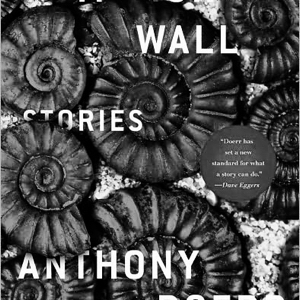It’s a curious thing how much we like to compare and rank. We scale the things of our lives, often for ease of communication, and usually we do it on something as simple as a sliding slope of 1-10: this nectarine is an 8, that Thai restaurant is a 7, the new D’Angelo album is a 9.4, and so on. (The first two are imaginaries; the last is Pitchfork’s rating for Black Messiah, and it’s a number I think could actually be raised higher. People with ears: listen to that album.)
Typically, we don’t like to give out perfect scores—when faced with something that’s really great we quickly become the stingy, tight-faced East German judge evaluating a teenage tumbler, hunting out any flaw we can find to avoid acknowledging perfection. But the reality is that in order for the scales to be properly calibrated, occasionally a perfect-10 must come along.
And then sometimes a thing comes along that goes to 11.
I recently finished reading Anthony Doerr’s collection of short stories, Memory Wall. Doerr became more of a household name—a sad and awkward modification of a borderline-oxymoronic phrase for a fiction writer in contemporary America—after winning that little award called The Pulitzer earlier this year for his novel, All The Light We Cannot See. I’m very behind everything and haven’t read it yet, but have only heard the most positive of positive reviews.
The short is that Memory Wall is really solid. The writing’s great—mostly Doerr keeps it clean and tight, although he’s clearly comfortable with more lyrical turns; the stories are engaging and well crafted; the images are thoughtful and circle back upon themselves in a really creative and unfurling manner; and the theme of exploring how we remember, and how that remembering makes us who we are (or limits who we can be), is super interesting to me.
The 11 that I referred to is the last story of this collection, Afterworld. I read this for the first time yesterday in the park across from my house. It was sunny and hot and kids were on their way to the zoo with their parents and I was the idiot sitting on the lawn crying over some papers in a book. What a day.
I won’t bother you with a summary or even an “analysis”; the first isn’t needed and I’m no good at the latter. Just trust me that this story is absolutely flawless in every way. If you want to calibrate the scales of story-telling, this is about as perfect a measure as you’re going to find.
